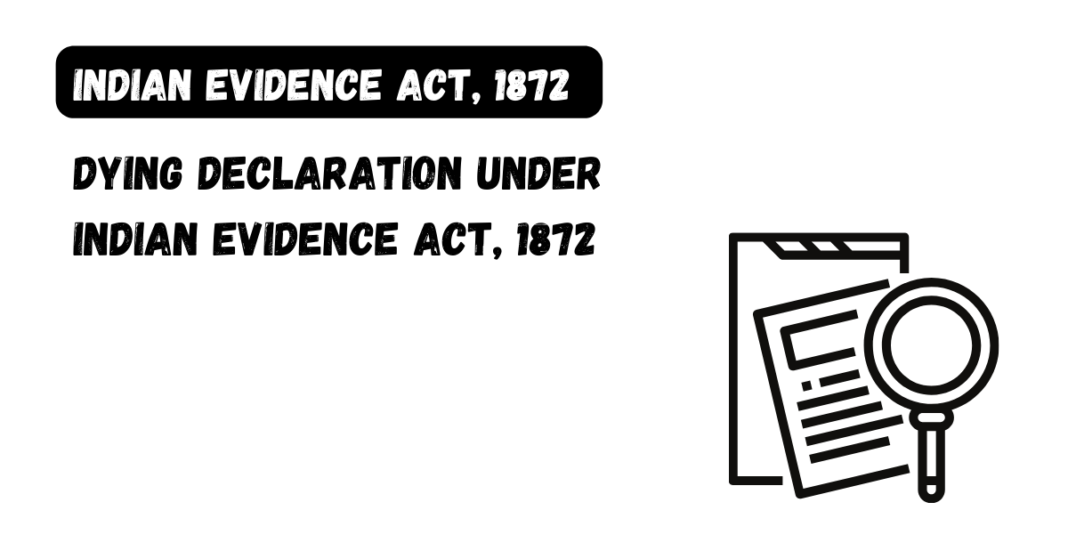The concept of a dying declaration is an important aspect of evidence in criminal cases. It refers to the statement made by a person who is on the verge of death, explaining the circumstances surrounding their impending death or the cause of their injuries.
Definition
A dying declaration is a statement made by a person who is aware of their impending death and believes that there is no chance of recovery. It can be oral or in a written form, depending on the circumstances.
Admissibility
Dying declarations are considered an exception to the general rule against hearsay evidence. Under Section 32 of the Indian Evidence Act, 1872, a dying declaration is admissible in court as evidence of the cause of death or the circumstances leading to the death.
Requisites of a Valid Dying Declaration
For a dying declaration to be admissible, it must fulfill certain requisites:
- Statement of Impending Death: The person making the declaration must believe their death is imminent and that there is no hope of recovery.
- Causal Connection: The statement must pertain to the cause or circumstances of the person’s impending death.
- Voluntariness and Consciousness: The person making the declaration must be in a fit state of mind and capable of understanding the questions and providing coherent answers.
- Absence of Influence: The statement should not be a result of coercion, inducement, or improper influence from any party.
Evidentiary Value
Dying declarations are considered strong and credible evidence because it is assumed that a person facing imminent death has no motive to lie. Courts often attach great importance to dying declarations and give them significant weight in criminal trials.
Corroboration
While a dying declaration can be sufficient to convict an accused person, the court may require some corroboration if it has any doubts about the truthfulness or accuracy of the declaration. Corroboration can come from other evidence or the circumstances surrounding the case.
Evaluation by the Court
The court carefully evaluates the dying declaration, considering the nature of the statement, the mental and physical condition of the declarant, any inconsistencies or contradictions, and other evidence in the case. The court must be satisfied that the declaration is reliable and trustworthy.





